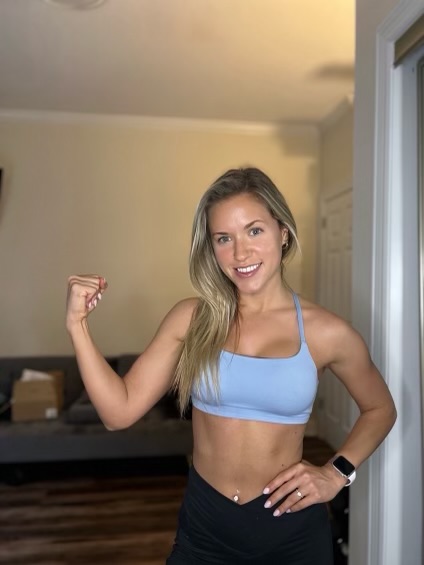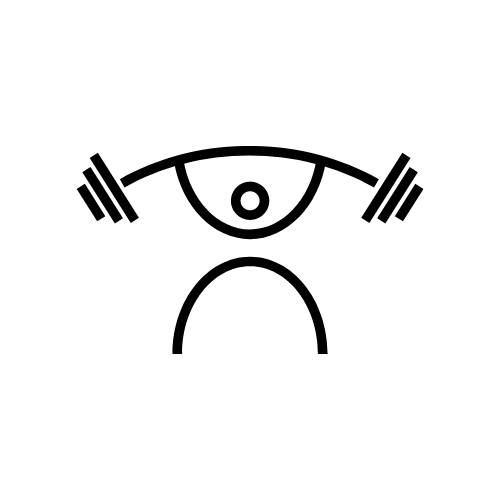Protein Power: How Much You Really Need and Why It’s More Than Just for Muscle
When people think of protein, the image of a bodybuilder chugging a post-workout shake usually comes to mind. But protein isn’t just for the gym bros. Whether you’re trying to bulk up, shed a few pounds, or simply live a long and healthy life, protein plays a vital role in every aspect of your diet. Yet, the million-dollar question remains: how much protein do we really need? And how can we optimize it based on our goals?
What Is Protein and Why Does It Matter?
Before we dive into the numbers, let’s take a second to understand what protein is and why it’s so crucial. Protein is a macronutrient made up of amino acids, the building blocks of virtually every tissue in your body—muscles, skin, hair, and even your organs. But its role goes far beyond just physical structure. Protein is involved in crucial bodily functions like immune response, hormone regulation, and enzyme activity.
So yeah, it’s kind of a big deal.
Protein and Your Goals: How Much Do You Really Need?
The amount of protein you need depends largely on your personal goals—whether you’re building muscle, losing fat, or maintaining health.
- For Muscle Gain: 1 Gram Per Pound of Bodyweight
If you’re on the “I want to look like Captain America” path, protein should be your best friend. When you’re working out 6-7 days a week with the goal of building muscle, your muscles need constant repair and growth. Here’s the golden rule: aim for 1 gram of protein per pound of bodyweight.
Why that much? When you’re in a consistent muscle-building phase, you’re breaking down muscle fibers almost daily. Protein helps repair and grow them bigger and stronger. Without enough protein, your body simply doesn’t have the raw materials to make those gains.

Where to Get Your Protein:
- Lean meats: Chicken, turkey, lean beef, and pork tenderloin are top picks. Not only do they pack protein, but they’re also lower in fat, which helps if you’re keeping your calories in check.
- Protein shakes: While whole foods are ideal, sometimes it’s just easier to grab a shake, especially post-workout when your body is primed to absorb nutrients.
- Eggs and dairy: Eggs, Greek yogurt, and cottage cheese are solid, nutrient-dense protein sources.
In short: You can’t shortcut protein intake and expect your muscles to grow like weeds. You’ve got to fuel your workouts with the right nutrients.
- For Fat Loss: High Protein Keeps You Full (and Off the Pasta)
If your goal is weight loss, protein is still the MVP of your diet, and here’s why: Protein reduces cravings.
It’s no secret that cutting calories can make you feel like you’re starving and eyeing the bread basket with dangerous intent. But higher protein intake can actually suppress your appetite and keep you from mindlessly snacking on carbs. Studies show that protein-rich foods make you feel fuller longer because they release hunger-reducing hormones like peptide YY and GLP-1.
By prioritizing protein over processed carbs (yes, we’re looking at you, pasta and pastries), you can keep your hunger in check and reduce the likelihood of overindulging in calorie-dense foods. For someone cutting weight, protein intake should still be relatively high—anywhere between 0.8 to 1 gram per pound of bodyweight.
Protein Aids in Fat Loss (Without Losing Muscle)
One of the worst things about losing weight is losing muscle mass along with fat. No one wants to lose all the muscle they worked hard to gain! Eating enough protein while cutting weight helps prevent this from happening. Your body will hold onto lean mass while you lose fat, leading to a leaner, more defined physique.
And, if you’re following a low-calorie diet, higher protein helps maintain your resting energy expenditure (the number of calories you burn at rest), which prevents that dreaded metabolic slowdown.
Research Backs It Up
Studies on protein and weight loss consistently show that higher protein intake not only aids in fat loss but also helps in preserving muscle mass during caloric deficits. In one study, participants who consumed 1.2 grams of protein per kilogram of body weight while on a reduced-calorie diet lost more body fat and maintained more lean muscle mass compared to those consuming lower protein amounts.
- For Longevity and General Health: Don’t Skimp on Protein
Okay, so maybe you’re not training for a marathon or looking to drop 20 pounds. Does protein still matter? Absolutely.
Protein is essential for maintaining muscle mass as we age. Muscle isn’t just for looking good at the beach; it plays a crucial role in overall health and longevity. Sarcopenia, the gradual loss of muscle mass and strength that comes with aging, can increase the risk of falls, fractures, and a general decline in quality of life.
Eating enough protein as we age helps stave off muscle loss, keeping us mobile, independent, and healthier for longer. In fact, a higher protein intake is linked to better bone health and improved immune function—two factors that become even more important as the years go by.
For longevity, a good rule of thumb is to consume 0.6-0.8 grams of protein per pound of bodyweight, focusing on nutrient-dense whole foods like fish, lean meats, eggs, and legumes.
Quality Matters: Not All Protein is Created Equal
While hitting your protein goals is important, quality matters too. Here are some of the best sources of high-quality protein:
- Lean meats and fish: Grass-fed beef, free-range chicken, and wild-caught fish are not only high in protein but packed with essential nutrients like omega-3 fatty acids, iron, and B vitamins.
- Plant-based proteins: If you’re vegetarian or vegan, don’t worry—you can still meet your protein needs. Foods like lentils, beans, quinoa, and tofu are excellent plant-based options. However, you may need to combine different plant sources to get a complete amino acid profile.
- Protein shakes: Whey protein is considered one of the best forms of supplemental protein because it’s rapidly absorbed and has a complete amino acid profile. If you’re lactose intolerant or prefer plant-based options, there are plenty of high-quality vegan protein powders available, like pea and hemp protein.
Timing Your Protein Intake for Optimal Results
When it comes to protein, timing is everything. While total daily intake is the most important factor, how you distribute your protein intake throughout the day can also make a difference.
For muscle building and fat loss, aim to spread your protein intake across 3-4 meals, rather than cramming it all into dinner. This ensures a steady supply of amino acids, which aids in muscle repair and reduces cravings. Research shows that consuming about 20-30 grams of protein per meal is optimal for stimulating muscle protein synthesis (the process that repairs and builds muscle).
Final Thoughts: Prioritize Protein for All Goals
Whether you’re training for a marathon, sculpting a lean physique, or simply trying to maintain your health, protein should be a priority in your diet. It’s not just about building muscle—it’s about supporting every system in your body, from your immune system to your metabolism.
So, load up on those lean meats, shake up that protein powder, and remember: protein is your ultimate ally, no matter what your fitness goals may be. And hey, it tastes a lot better than kale, too.

